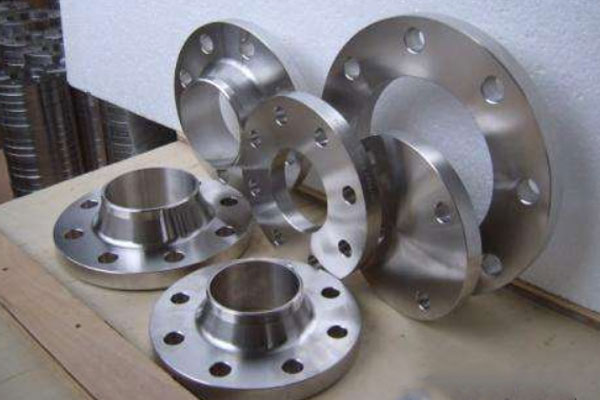What are the considerations in the design of custom flan?
Today's flange, is to become our life and many industries, can be used to seal products. Therefore, today's flange application or a very wide range of customized flanges has become a product that can be used in many places. Then the following points should be paid attention to before the customized production of flanges.
1. Tooling design and manufacturing
Large flanges are welded by 2 clamping bottom plates of 900 each, 2 flange supports, 2 vertical plates and 4 reinforcing plates. In order to ensure the stiffness of the tooling, the welding seam of the connected plate should be beveled through, and the welding Angle is 20-30mm high. On the flange plate corresponding bolt hole is drilled, guarantee the accuracy of the flange to flange plate with bolts connection, the small end flange and plate on the back, the gap between can put small manual jacks and press along the vertical direction of plate on the flange plate open a gap, so that the elbow into tooling, adopt the structure of the thicker steel plate approximate trough type tooling, To meet the requirements of cutting rigidity.
2. Tooling performance requirements
The two flange surfaces of large flanges are perpendicular to each other, and the table of vertical lathe is horizontal rotation, so the main function of the tooling is to use the bolt hole on the large flange to connect the tooling and the flange together. When the tooling is clamped on the workbench, it should be guaranteed that the processed flange plane is concentric and parallel to the vertical lathe worktable. In order to reduce the number of tooling, the tooling should be able to change the clamping position, so as to ensure that the size of the elbow 2 ends can be processed on one tooling. At the same time, the tooling must have enough stiffness, otherwise it will seriously affect the processing quality of the flange sealing ring groove, so in order to meet the requirements of use, the height of the tooling should be reduced as far as possible, so as to improve the stiffness and facilitate operation. After the fixture is fixed with the large flange, the turning radius should not exceed the working radius of the vertical car, and can be easily clamped and adjusted, and is convenient for cutting.
3. tooling stiffness check
The deflection and rotation Angle of cantilever beam with groove structure should be checked when the force of cantilever beam is bent and twisted during turning. Through the above check, the maximum deflection of 7.27× LO -7m and the maximum Angle of 8.969×10-5 are minimal deformation, and in the relevant parts of the increase of reinforcing bars, stiffness far beyond the calculated value, stiffness can fully meet the requirements of cutting force, After the combination of the tooling and the elbow flange, the maximum rotary diameter is 2.42m < 3.50m (rotary diameter of double column vertical car), so this tooling is theoretically feasible.
4. turning processing
When processing large flanges, the bottom plate is downward mounted on the vertical car workbench, the elbow flange is installed in the tooling, and the big-end flange is fixed with bolts and brackets to ensure that the flange processing surface and the vertical car workbench are concentric and parallel to be cut. When processing the small-end flange, the bottom plate of the tooling is downward and clamped on the workbench of the vertical car. After tightening the back of the small-end flange and the small supporting plate, the small-end flange and the small supporting plate can be fixed with bolts before cutting the small flange. The verticality of the large and small flanges should be guaranteed when looking for the forward clamping in cutting.
5. Structural elements
The large flange tooling simple and reasonable structure, easy fabrication, good rigidity, process alignment adjustment is easy to operate, fully meet the large elbow flange stand on the machining needs of the three groups of elbow flange completely qualified, under the condition of no end machine tools in the future, with vertical lathe machining similar parts has opened up a new way.
